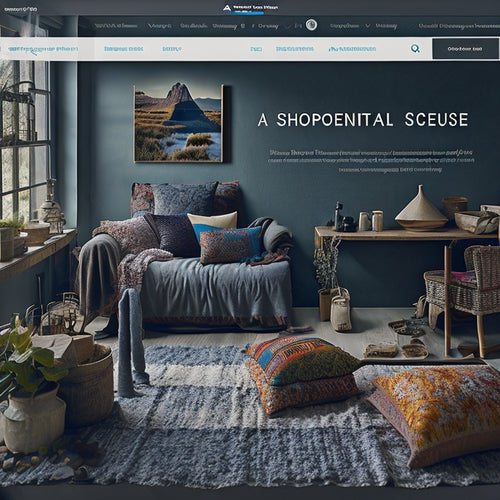
What's the Best Platform for Online Course Creation?
Share
You're searching for the best platform for online course creation, but with so many options, it's difficult to know where to start. Udemy, Teachable, and Thinkific are popular choices, each with their strengths and weaknesses. Consider your target audience, course type, and desired level of customization when making your decision. Look for features like course builders, multimedia support, and quizzing tools to ensure student engagement. You'll also want to think about pricing models, user experience, and scalability. By weighing these factors, you'll find the perfect platform for your online course - and taking the next step will reveal even more important considerations.
Key Takeaways
• Consider your target audience, course type, and customization needs when selecting an online course platform.
• Look for a platform with robust features, including course builders, multimedia support, and quizzing tools.
• Choose a pricing model that aligns with your revenue goals, such as subscription-based, freemium, or premium-only.
• Ensure the platform provides a user-friendly interface, prompt support, and user feedback integration for a seamless experience.
• Select a platform that offers scalability, customization options, and integration with third-party tools for long-term growth.
Popular Online Course Platforms
When creating and selling online courses, you have a multitude of platforms to choose from, each offering unique features and benefits that cater to different needs and goals. You'll find popular options like Udemy, Teachable, and Thinkific, each with their strengths and weaknesses.
Udemy, for instance, is ideal for reaching a massive audience, with over 130 million students. It's a great platform for beginners, offering a range of customization options and marketing strategies to help you get started.
Teachable, on the other hand, provides more advanced features, allowing you to create complex course structures and offering more flexibility regarding pricing and payment plans.
Thinkific is another popular choice, offering a user-friendly interface and robust customization options, making it easy to create a course that reflects your brand.
Ultimately, the choice of platform depends on your specific needs and goals. Consider your target audience, the type of course you're creating, and the level of customization required.
Features to Consider for Success
As you select a platform for your online course, you'll want to evaluate the features that will help you achieve success, such as ease of use, scalability, and integrations with third-party tools. These features will enable you to focus on what matters most: creating high-quality content and engaging with your students.
When it comes to content creation, consider the following key features:
-
Course builder: A user-friendly tool that allows you to organize and structure your course content with ease.
-
Multimedia support: The ability to upload various file types, such as videos, images, and PDFs, to create an immersive learning experience.
-
Quizzing and assessment tools: Features that enable you to create quizzes, assignments, and exams to track student progress and understanding.
Additionally, think about the marketing and promotion tactics you'll use to attract students to your course. Look for a platform that offers features such as email marketing integrations, affiliate marketing tools, and SEO optimization to help you reach a wider audience. By considering these features, you'll be well on your way to creating a successful online course that resonates with your target audience.
Pricing and Revenue Models
You'll need to carefully consider the pricing and revenue models offered by your chosen platform to guarantee they align with your business goals and provide a sustainable income stream. A subscription-based model allows students to access your course content for a recurring fee, providing a steady revenue flow. On the other hand, a one-time payment model offers students lifetime access to your content, generating a single lump sum.
Freemium models, where basic content is free and premium content is paid, can be an effective way to attract students and upsell. Conversely, premium-only models can attract high-paying students seeking exclusive content. It's essential to evaluate your target audience, content value, and competition to determine the most suitable pricing strategy.
Some platforms offer revenue-sharing models, where the platform takes a percentage of your course sales. Others charge a flat fee or offer tiered pricing based on course sales. Be sure to calculate the costs and potential earnings to ensure your chosen platform's pricing model aligns with your business goals and provides a profitable income stream.
User Experience and Support
Two crucial aspects of an online course creation platform are its user experience and support, which directly impact students' ability to engage with your content and your ability to resolve issues efficiently.
You want a platform that's easy to navigate, both for you and your students. A well-designed platform will help you create engaging courses, while a responsive support team will make sure you get the help you need when you need it.
When evaluating a platform's user experience and support, consider the following:
-
User-friendly interface: Can you easily create and manage your courses without needing a PhD in tech?
-
Prompt support: How quickly does the support team respond to your queries, and do they provide helpful troubleshooting tips?
-
User feedback integration: Does the platform take user feedback seriously and integrate it into their development roadmap?
A platform that excels in these areas will help you create a seamless learning experience for your students and reduce the stress of troubleshooting technical issues.
Scalability and Integration Options
Your online course creation platform's scalability and integration options directly impact your ability to expand your student base and leverage external tools to enhance the learning experience. As you broaden your course offerings, you need a platform that can seamlessly handle increased traffic and user activity.
Look for a platform that offers flexibility regarding course structure and customization options, allowing you to tailor your content to specific audience needs.
When it comes to integration, consider a platform that supports a wide array of third-party tools and services. This could include learning management systems, payment gateways, and marketing automation tools. Having these integrations in place enables you to streamline your workflow, automate tasks, and gain valuable insights into student behavior.
Additionally, ensure the platform provides APIs and developer tools, allowing for further customization and development of custom integrations. By selecting a platform with robust scalability and integration options, you'll be well-prepared to manage growth and provide a premium learning experience to your students.
Frequently Asked Questions
Can I Use My Own Branding and Domain for My Online Course?
"Blood is thicker than water," but in online course creation, your brand is thicker than a generic URL! You can absolutely use your own branding and domain, ensuring custom branding, domain options, brand protection, and content security - it's a no-brainer!
How Do I Protect My Course Content From Being Copied or Shared?
You'll want to safeguard your intellectual property by implementing copyright protection, watermarking, and content encryption to prevent unauthorized sharing. Additionally, set up access control measures to restrict course content access to authorized learners only.
Are There Any Limits to the Size of My Course Files and Uploads?
You'll need to check the platform's file size restrictions and upload limitations, as well as its storage capacity and data constraints, to confirm your course files fit within their allowed parameters.
Can I Sell My Online Course on Multiple Platforms Simultaneously?
You can sell your online course on multiple platforms simultaneously, but be cautious of exclusive partnerships and revenue sharing agreements that might limit your content visibility and audience engagement.
Do Online Course Platforms Provide Any Built-In Marketing Tools or Features?
As you navigate the online course landscape, you'll find that most platforms offer a treasure trove of built-in marketing tools, allowing you to harness social media promotion and email campaigns, as well as influencer partnerships and affiliate marketing to catapult your course to success.
Related Posts
-

5 Proven Ways to Monetize Online Courses
You've created valuable online courses, and now it's time to maximize your earnings. To monetize your courses effecti...
-
Best Sitemap Builder Shopify Apps for Your Business
This article examines the best sitemap builder Shopify apps available for businesses. It presents an objective analy...
-

Does Shopify Optimize Images
This article examines the extent to which Shopify optimizes images. It explores the benefits of using Shopify's imag...

